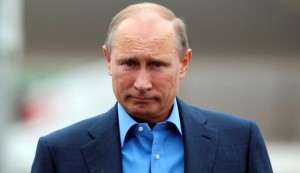


 The United States is not asking NATO to back a Syria no-fly zone and the issue is not currently on the alliance’s agenda, the outgoing U.S. ambassador to NATO said on Monday, hours after Russia declared that it would not permit such action to be imposed over Syria.
The United States is not asking NATO to back a Syria no-fly zone and the issue is not currently on the alliance’s agenda, the outgoing U.S. ambassador to NATO said on Monday, hours after Russia declared that it would not permit such action to be imposed over Syria.
“We are not pushing for a no-fly zone at NATO,” Ivo Daalder said in response to questions after his farewell speech in Brussels.
As of today, he said: “the issue of a no-fly zone is not on the table at NATO. Whether it will [be] tomorrow or some other day, I don’t know, but it isn’t there yet. It isn’t, as far as I know, on the table of any NATO member, including, so far the United States.”
“I think we fundamentally will not allow this scenario,” Foreign Ministry spokesman Alexander Lukashevich told a news briefing on Monday, adding that calls for a no-fly zone showed disrespect for international law.
Lukashevich said Russia, a veto-wielding member of the UN Security Council, did not want a scenario in Syria that resembled the events in Libya after the imposition of a no-fly zone which enabled NATO aircraft to help rebels overthrow Muammar Gaddafi.
Lukashevich spoke before planned talks between President Vladimir Putin and U.S. President Barack Obama on the sidelines of the G-8 summit which were expected to focus on the conflict in Syria that has killed at least 93,000 people.
Western leaders criticized Russian President Vladimir Putin for supporting Syria‘s Bashar Assad in his battle to crush a two-year-old uprising, setting the stage for what could be a difficult meeting of world leaders over Monday and Tuesday.
British Prime Minister David Cameron, who is chairing the summit, acknowledged there was “a big difference” between the positions of Russia and the West on Syria.
Russia and the United States are trying to bring representatives of Syrian President Bashar Assad and his foes to the negotiating table, but Moscow has criticized U.S. plans to arm rebel forces and to consider imposing a no-fly zone.
Obama will meet Putin later on Monday and, in what could be a frosty encounter, will try to convince the Kremlin chief to bring Assad to the negotiating table. Putin has warned the West it risks sowing turmoil across the Middle East by arming the Syrian rebels.
Other Western leaders criticized Russia, Assad’s only big-power ally, for delivering arms to Assad while the rebels – whom Putin described on Sunday as cannibals who ate their enemies’ intestines – perished.
“How can we allow that Russia continues to deliver arms to the Bashar Assad regime when the opposition receives very few and is being massacred?” French President Francois Hollande said.
Canadian Prime Minister Stephen Harper said Putin was supporting Assad’s “thugs”.
“I don’t think we should fool ourselves. We, the G7 + 1, that’s what this is, we in the West have a very different perspective on this situation,” Harper said.
Stung by the Iranian-backed Hezbollah’s recent victories for Assad’s forces in the civil war, the United States said last week it would step up military aid to the rebels including automatic weapons, light mortars and rocket-propelled grenades.
The European Union has also dropped its arms embargo on Syria, allowing France and Britain to arm the rebels, though Cameron expressed concern about some of Assad’s foes.
“Let’s be clear – I am as worried as anybody else about elements of the Syrian opposition, who are extremists, who support terrorism and who are a great danger to our world,” Cameron said.
Obama and Putin are due to meet at about 6:30 pm local time at the Lough Erne golf resort about 10 km outside the Northern Irish town of Enniskillen, scene of an IRA bomb attack in 1987 that killed 11 people.
Security was tight and the venue was surrounded by a high steel fence, though Cameron was keen to showcase the relative peace in Northern Ireland as it tries to attract investment after decades of trouble.
In a speech in Belfast, Obama urged young people in Northern Ireland to finish making “permanent peace” and set an example to other areas of the world stricken by conflict.
Cameron could also face some awkward questions at the G8 table after a Guardian newspaper report that Britain spied on officials taking part in two group of 20 meetings in 2009.
-Reuters






